Window Treatments
Add in the WOW factor with effective Window Treatments
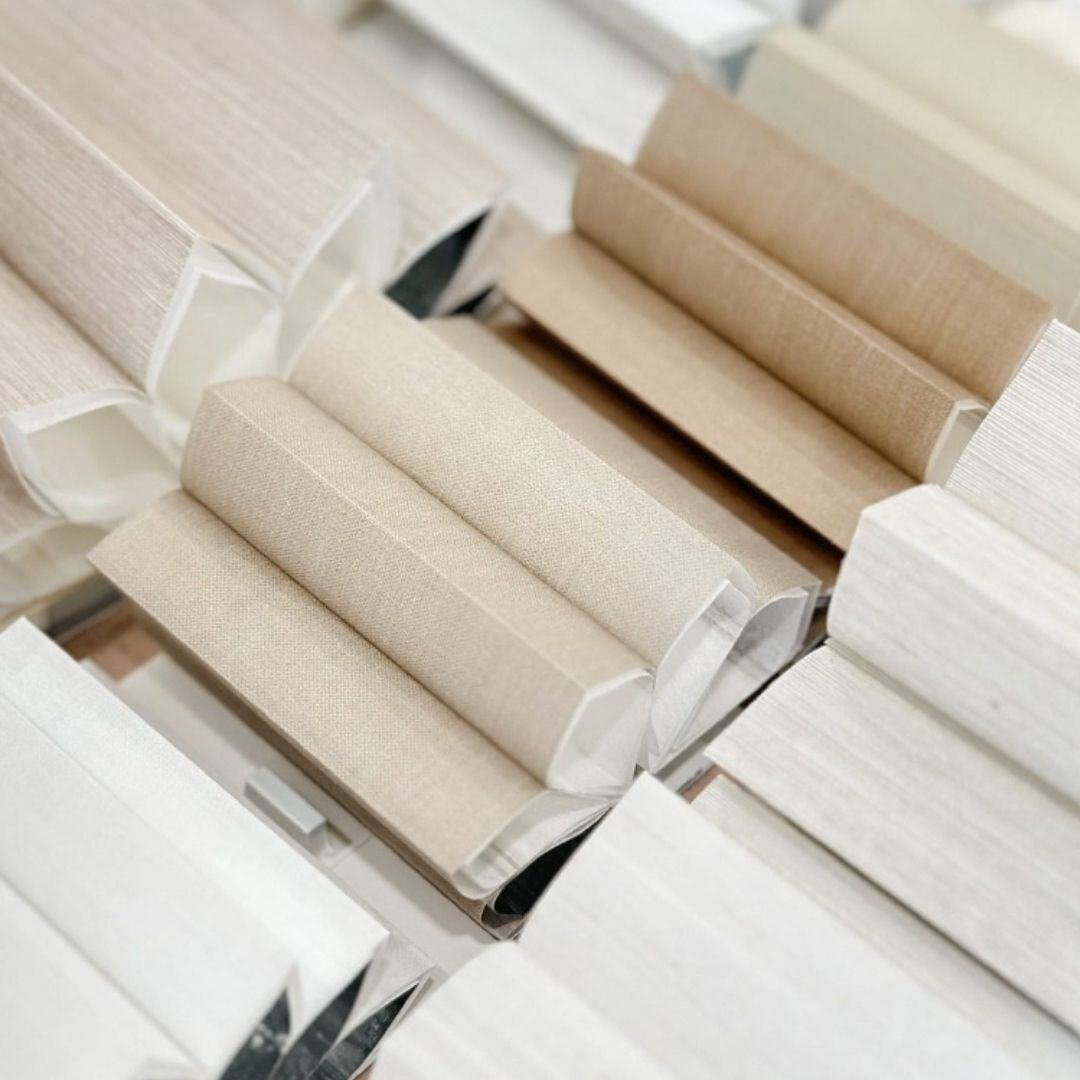
When designing a spectacular room, the details make the excellent stand out from the just okay. Experts say that having proper light control can increase productivity and workplace wellness.
Roller Shades
One of the most popular types of window treatments for office space is roller shades. Roller shades offer a clean and modern look, and you can customize the fabric, colour and texture!
Roller shades are a solid sheet of fabric that can be pulled down over your window. This kind of window treatment allows you to add privacy and block out some of the light without sacrificing style. These shades roll up into a panel at the top of the window! This panel completely conceals the shade, so it’s not visible when put away.
There are different kinds of roller shades that can be modified to match your space and your style. One of the different types of roller shades is solar shades, used with a UV protectant scene like mesh material to block out the sun but still let the light shine through.
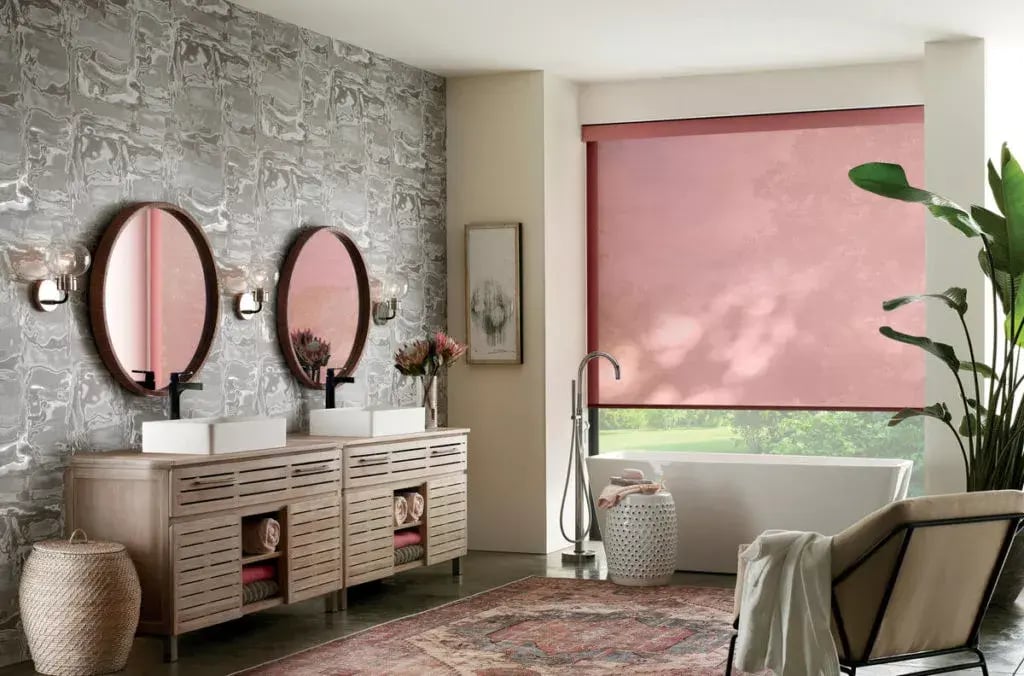
Honeycomb Shades
Honeycomb Shades are also known as cellular shades, and these work great for sun control. You can install these on even huge windows! They are also ideal for improving your space’s insulation.
These shades sometimes have the appearance of pleated paper, with air pockets designed to help with insulation. The cellular construction means that hot air is trapped in the winter, and cool air is trapped in the summer. Similar to roller shades, you have control over the fabric, light control, pleats and textures.
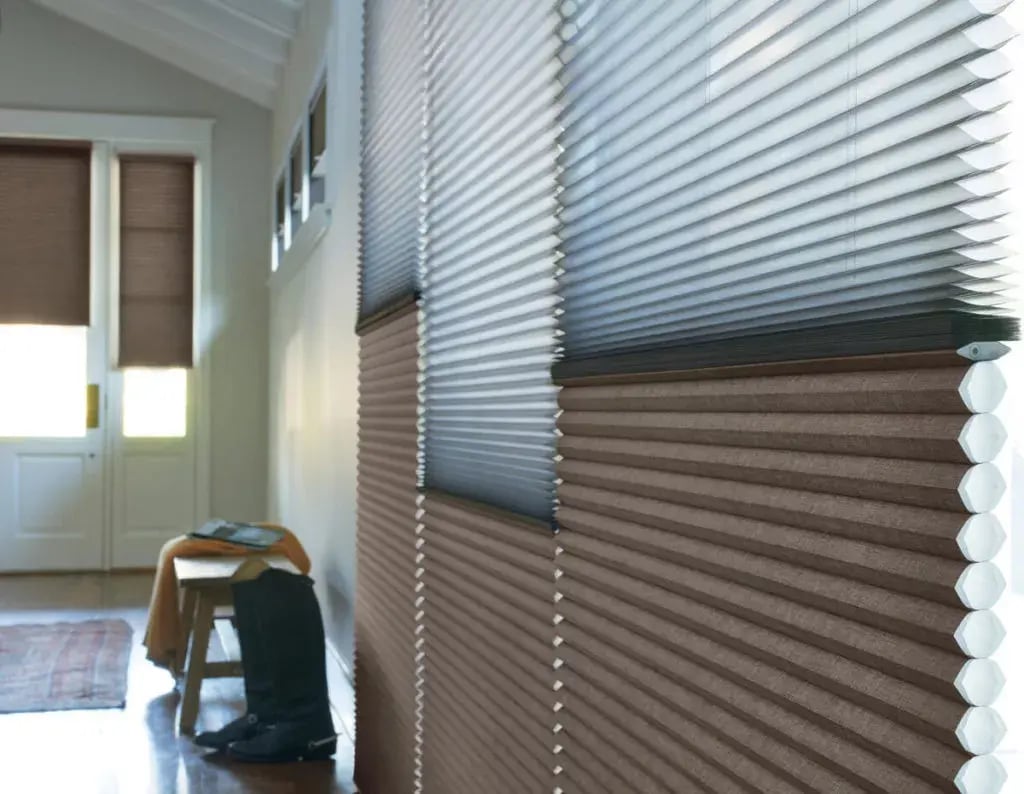
Shutters
Shutters are typically used in residential spaces but also work great for office spaces. They allow you to control how much light and air come through a window throughout the day.
These window treatments are made of louvres that are mounted in a frame around the window. With shutters, you control the slats’ tilt, which changes how much light and air get in.
Shutters are a fashionable way to control light and airflow while still having an elevated aesthetic.
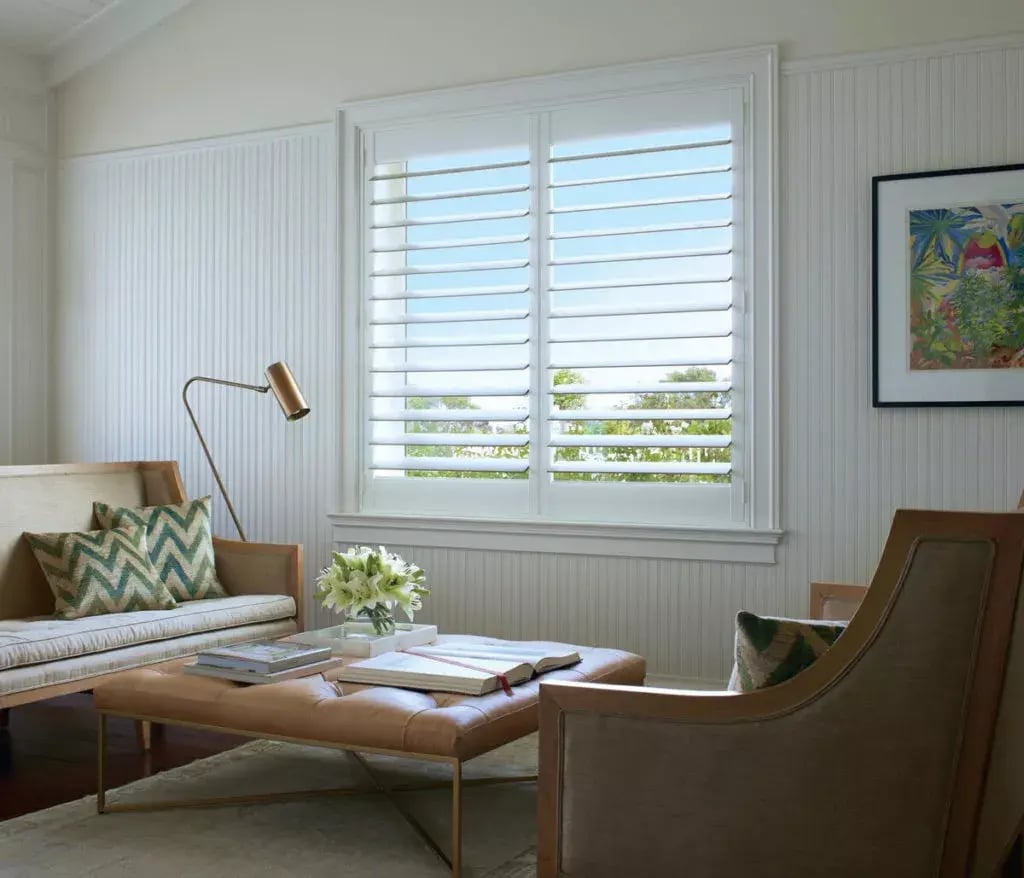
Vertical Blinds
Vertical blinds are an ideal choice for large windows or sliding glass doors. These window treatments have slats that run up and down. Vertical blinds hang from a track with a valance at the top of the window.
With vertical blinds, you control the material and width of the panel and the slats’ size. These are an excellent option for those hard-to-fit places, and they add visual height to a room. Sometimes vertical blinds also act as a room divider.
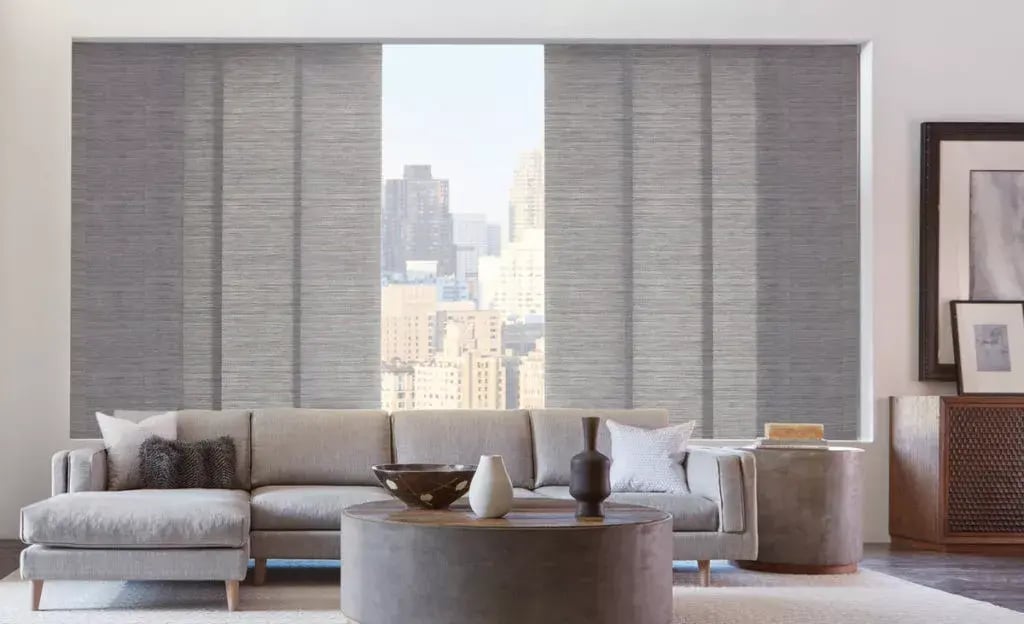

A Complete Guide to Ergonomics in the Workplace
Pain shouldn’t be the price you pay for productivity. If backaches and neck strain are dragging you down, our ergonomic guide is here to help.
What materials are available for window treatments?
There are endless materials that work for window treatments—literally hundreds of different fabrics, colours and opacities. If purchasing from a dealership like Office Interiors, these are all commercial-grade fabrics customized to fit your space.
There are wooden options, metal options, plastic options, and nearly every colour under the rainbow. There are also blackout and antimicrobial options available designed to fit every need.
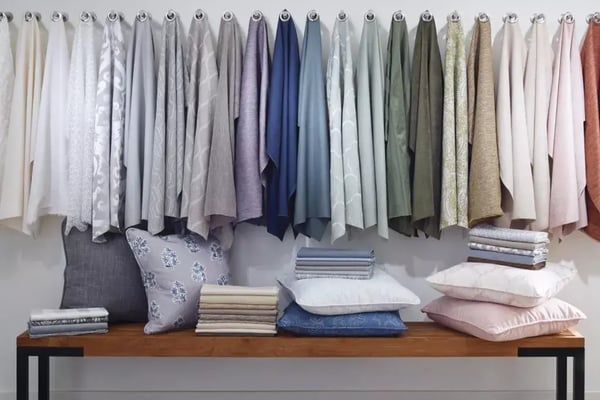
What are common window accessories?
Window treatment accessories are made to work cohesively with your product. They make your treatment more functional while also being aesthetically pleasing. Often, you have to install these accessories when installing new window treatments, so it’s essential to consider all design factors when making a decision.
Valances
A valance is a decorative element of some window treatments and adds a finishing touch that ties together any room. The term valance is widely used to describe any kind of accessory used to hide window treatments.
Valances are installed near the top of the window or window treatment. Valances are made to hide the shutters, blinds, or any additional unsightly hardware. Valances are also used to cover juxtaposing blinds to create a more cohesive look. Using a valance made of high-grade material will brighten up a room and bring in a more contemporary look.
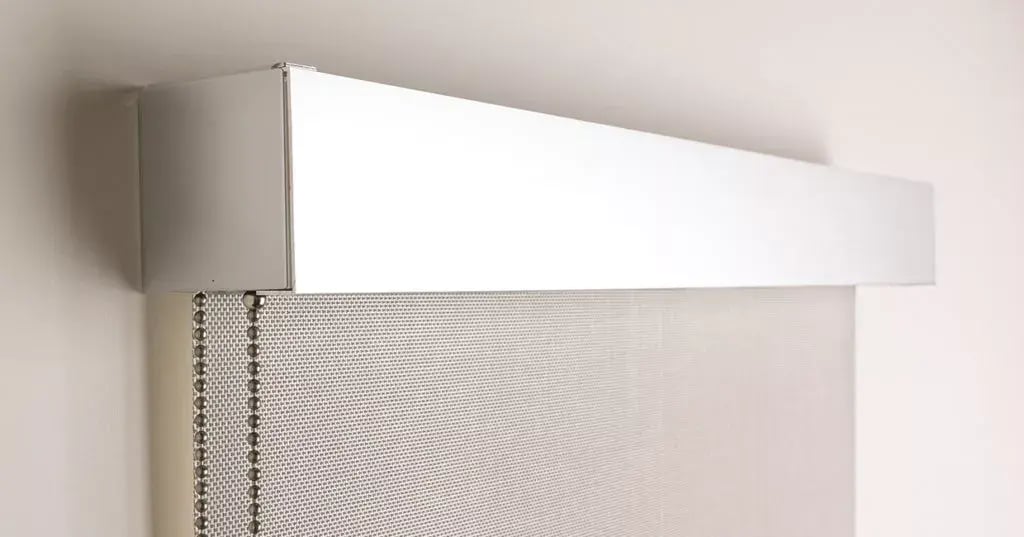
Bottom Bars
Bottom bars are used at the bottom of shades or blinds and used as a weight to keep your treatment rolled down. You use the bottom bar to guide your shade, and it prevents the treatment from rising and falling on its own.
Most bottom bars are made from weighted aluminum and are designed specially to work with your treatment’s center of gravity.
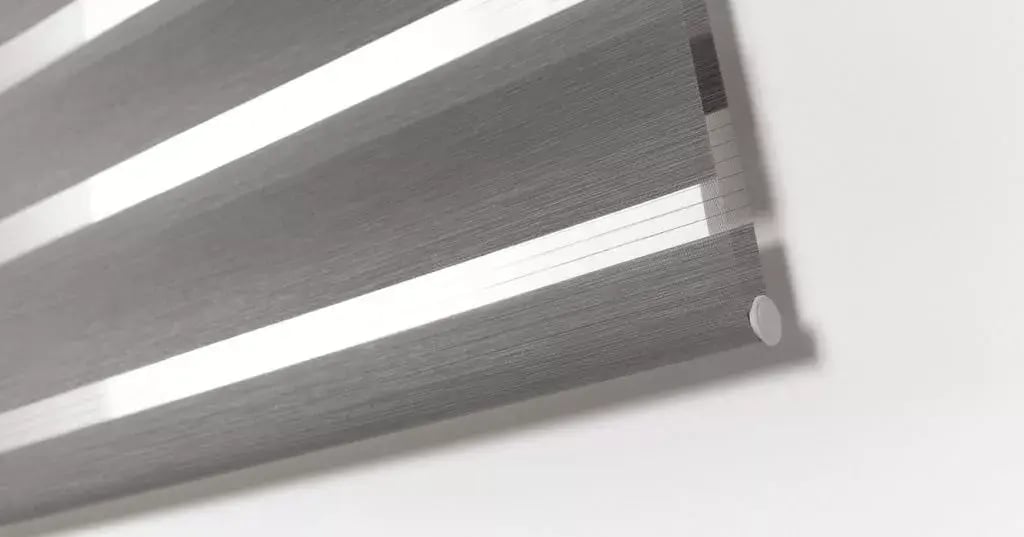
Side Channels
Do you have a room where you want complete darkness? Perhaps it’s a classroom, meeting room or server room. While having blackout window treatments is a great option, you should also look into getting side channels to ensure no light leakage from the windows.
Side channels are a seal between the fabric and the frame, and they help physically extend your shades.
Side channels help hold your blinds in place. Many modern window treatments are lighter and can move around in a room if not weighted down. Side channels minimize the movement by securing the frame.
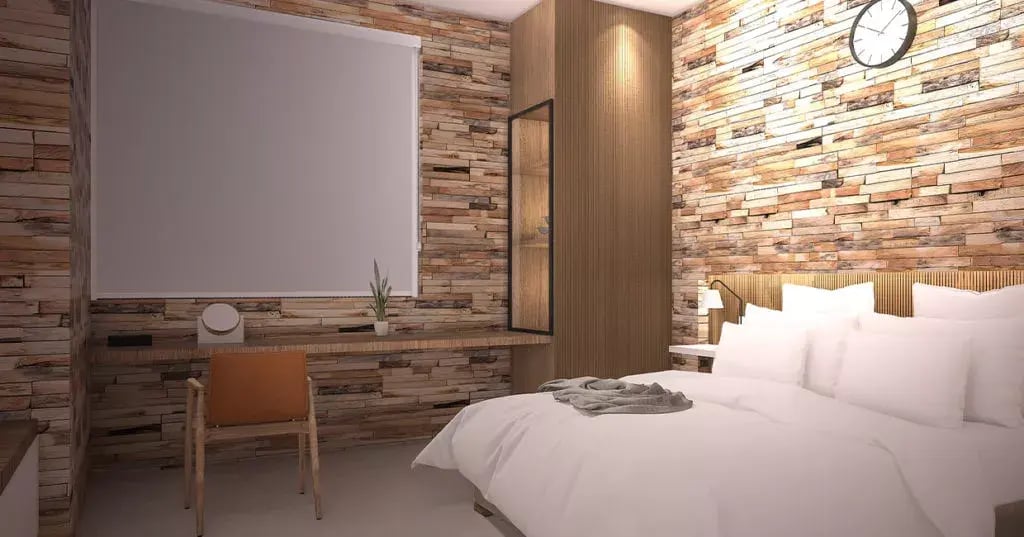
Power-operated treatments
Some of the window treatments come with the option to be power-operated.
Whether hardwired into your space or battery-operated, these solutions allow you to control the blind, shutter or shade from afar. Different manufacturers offer different controls depending on the type.

Visit Our Online Store
Take the work out of furnishing your workspace.
Browse through countless options and choose ergonomic office solutions that make you feel best from the comfort of your home (or anywhere). Create your team or home office in a few clicks and have your items delivered straight to your door.
What Do Office Window Coverings Cost?
Like most office furniture, how much window coverings cost is highly variable; however, we have a target budget that we recommend; we recommend budgeting approximately $10 per square foot of window.
While this is a very rough estimate and your actual price could vary quite notably, this number should give you a good place from which to work. For example, when fitting out our new Dartmouth Showroom with window coverings, we targeted a budget of just over $170 for each of the 36″ by 72″ windows, just a little under the $10 target budget.
What Factors Most Impact the Cost of Office Window Coverings?
There are quite a few factors that can influence how much you end up paying for your window coverings. Three are the most definitive: your window measurements, which fabrics and finishes you select and whether you choose any additional treatments.
Window Measurements
The larger your window, the more material required to cover it adequately and the more the manufacturer will charge. If you have an unusually shaped window (ex. rounded), this can also increase your window coverings’ price.
Material & Fabric Selection
Have you selected a standard colour and fabric for your window coverings, or have you elected to go with a premium patterned material? Perhaps you would like fabric with more opacity requiring a denser weave? Any time you upgrade your materials, you could dramatically increase the price of your window coverings.
Additional Treatments and Features
Since window coverings are so customizable, they also have many additional features or treatments you can add… for a price.
Which mechanism do you want? Is it powered? Have you chosen custom valences matching your interior’s finishes?
Would you like your window to operate from top-down, as is standard, or would you prefer if it worked from the bottom-up? There are dozens of options to customize your window coverings to suit your space perfectly, but each does come with an additional price tag.
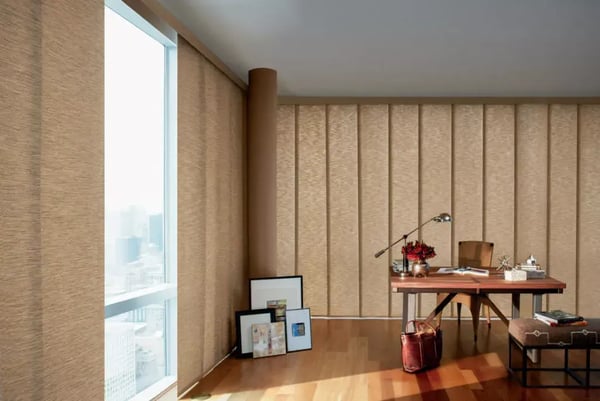
What is the Buying Process for Window Treatments?
Step 1 – Evaluate the room.
Make a list of your priorities, colours, and the light in the room. Take pictures of the room to use for reference further down the line.
Step 2 – Measure the window.
Conduct a DIY measure of the window you want to cover and include this in your window treatment folder.
Step 3 – Come to a dealer.
Since there are many different types of window treatments and ranges in prices, you should always consult a professional. Book an appointment with your local window covering specialist. Bring your window treatment folder and an open mind!
Step 4 – Determine your budget and style.
When working with your workspace planner, you will determine what treatment will work for you. Go through style and design sample books and select anything you might want! This is your chance to work with your workspace planner to find the perfect solution for your room.
Step 5- Get professional measurements.
To get an accurate quote and ensure there are no headaches later, we always recommend getting your windows measured by a professional.
Step 6 – Order your treatment.
You will receive a quote for the window treatment and styles you selected with your workspace designer. Once everything looks good, your dealer will place the order.
You should expect about a four-week lead time between ordering and receiving the product.
Step 7 – Installation.
Window treatment installation is typically quick and easy and can be done in one afternoon. We always recommend getting a professional to do the install to mitigate any issues that may arise.
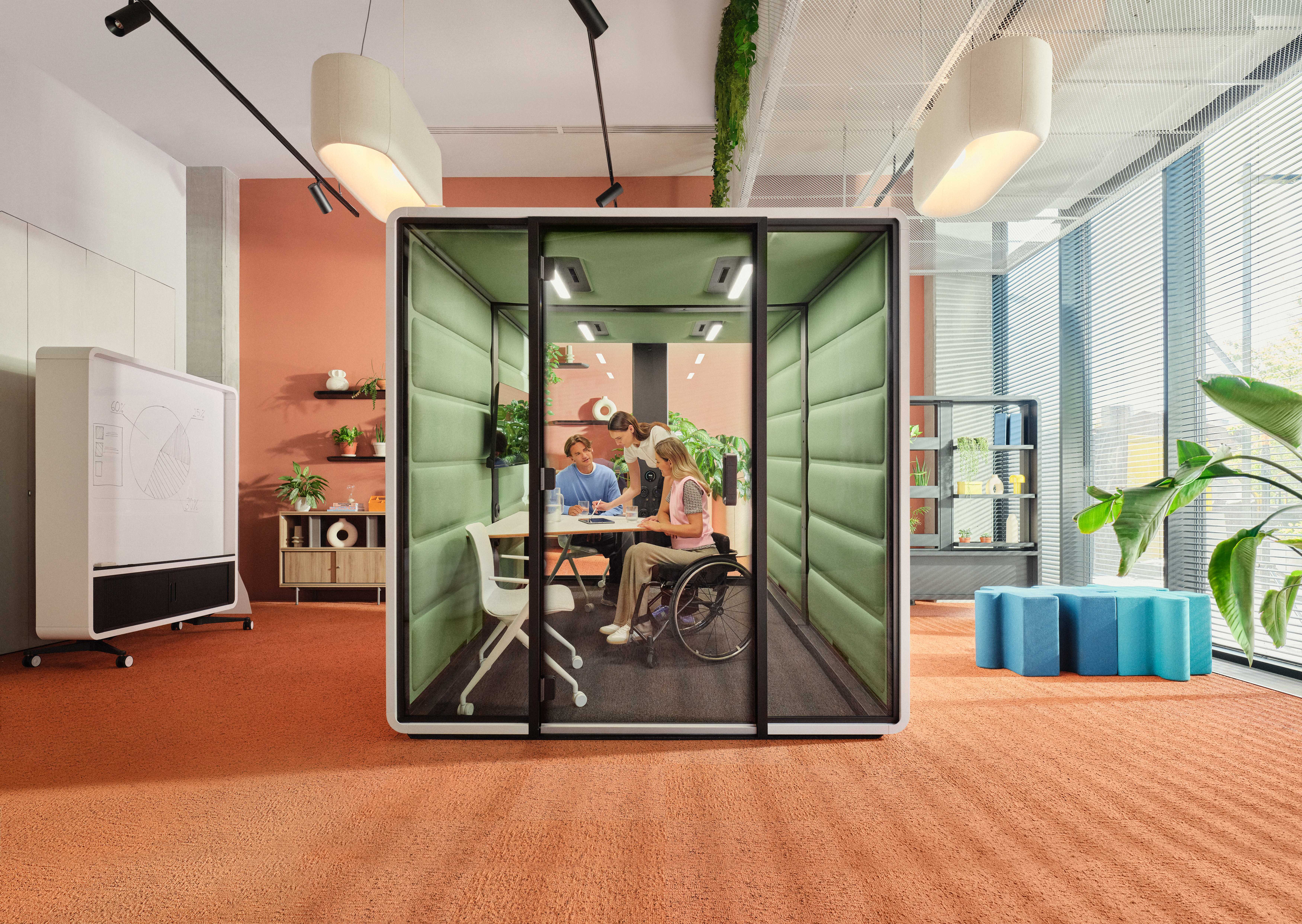
Ready to Hush the Noise and Amplify Productivity Levels?
Acoustic, visual, and architectural privacy are interrelated.
Which is good news! Because it means many office privacy solutions are versatile, unlocking multiple benefits at once.
Request a Free Consultation
Create a space that you are proud of! Determining the appropriate light level and shading solution for your office can be an exact and challenging task. Put our 30 years of experience to work and find the perfect solution for your space—contact our experts today.

